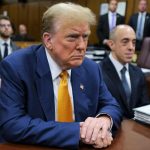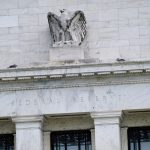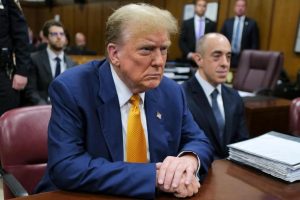
Editor’s Note: Fareed Zakaria hosts “Fareed Zakaria GPS,” airing at 10 a.m. and 1 p.m. ET Sundays on CNN. The views expressed here are his own. Read more opinion at CNN.
CNN
—
The news of former President Donald Trump’s indictment has left me feeling torn.
On the one hand, Trump is a walking advertisement for rich privilege. For decades he has flouted rules, norms and even laws as he climbed his way to the top, brazenly convinced that the usual standards didn’t apply to him. His company was found guilty of tax fraud, he’s been taken to court countless times over unpaid bills, and he’s even stolen money from his own charities.
For those who saw Jon Stewart on “GPS” last week, that was the gist of his passionate argument. Jon was certainly right that the law should not care about the popularity of a person or the political effect of an indictment — and no one can really be sure what that effect will be in the long run anyway.
And yet this case is not simply one of the law in all its impartial majesty holding someone to account. The prosecutor, Alvin Bragg, is an elected district attorney who ran a campaign for that office boasting that he had helped sue Donald Trump “more than a hundred times.” Even so, once elected and after looking over the evidence, he is reported to have put the case on the back burner, which triggered a storm of criticism from his Democratic base. He then reversed course and decided to pursue the case on a new basis, if reported accounts are correct, which goes like this: Trump’s offense is to have violated New York state law by falsifying business records, but the statute of limitations for that misdemeanor has expired.
So Bragg’s office will argue that the misdemeanor is actually tied to a felony because it violates federal election laws. But that violation is one that the Justice Department under both Trump and President Joe Biden looked at and decided against prosecution. That is, as many experts have pointed out, a novel legal theory. I should note that Trump denies any wrongdoing.
Given the circumstances, this case has the feel of zealous prosecutors minutely examining all possibilities to find some violation of the law. This upends the notion in Anglo-Saxon law that you first have a crime and then search for the criminal, rather than first looking at the person and searching to see if he or she has committed a crime.
Many Republicans have darkly prophesied that this is a watershed moment in American history and will unleash a torrent of indictments by state prosecutors against national politicians whom they dislike. Perhaps, but they seem to have forgotten that they have been instrumental in developing this weaponization of the legal system. The Wall Street Journal huffed and puffed last week, “As these columns have made clear, we believe any prosecution of a former President should involve a serious offense.”
Really? The Wall Street Journal filled six volumes with over 3,000 pages of editorials endorsing the crazy Whitewater-related investigation of a sitting president. For those who have forgotten, Whitewater was a failed land deal in which Bill and Hillary Clinton lost money, which triggered a special prosecutor, who found nothing he could use to prosecute them on that matter, but in the course of the investigation learned that Bill Clinton had had a sexual relationship with a White House intern, which he then used to ask Clinton questions that he figured the president would answer dishonestly — leading to a perjury charge. A serious crime?
The Journal’s standard is the right one, however, and the truth is, Trump is likely to face just such charges soon. In Georgia, he quite possibly could be` prosecuted for having threatened Secretary of State Brad Raffensperger to “find” the 11,000-odd votes he needed to win that state in 2020. And then there is the January 6, 2021, uprising in which he could easily be charged by federal prosecutors with an effort to overturn an election.
Trying a former president breaks centuries of precedent, but he should be tried if the offenses themselves are likewise precedent-shattering, and those election-related ones are. Paying hush money to cover up an affair, however, is not at that level. And I worry that the far more serious cases against Trump will get lumped together with the Stormy Daniels affair as just more efforts to find something to bring Trump down.
The rule of law is pursued not simply to punish people but to create a system of self-government that is widely viewed as legitimate. The hush money case will captivate the country. And if the rumors about the charges facing him are true, Trump is probably guilty. But will it create more or less faith in our judicial system and our democratic system? That is the worry that leads me to conclude that this is a case of trying the right man for the wrong crime.





